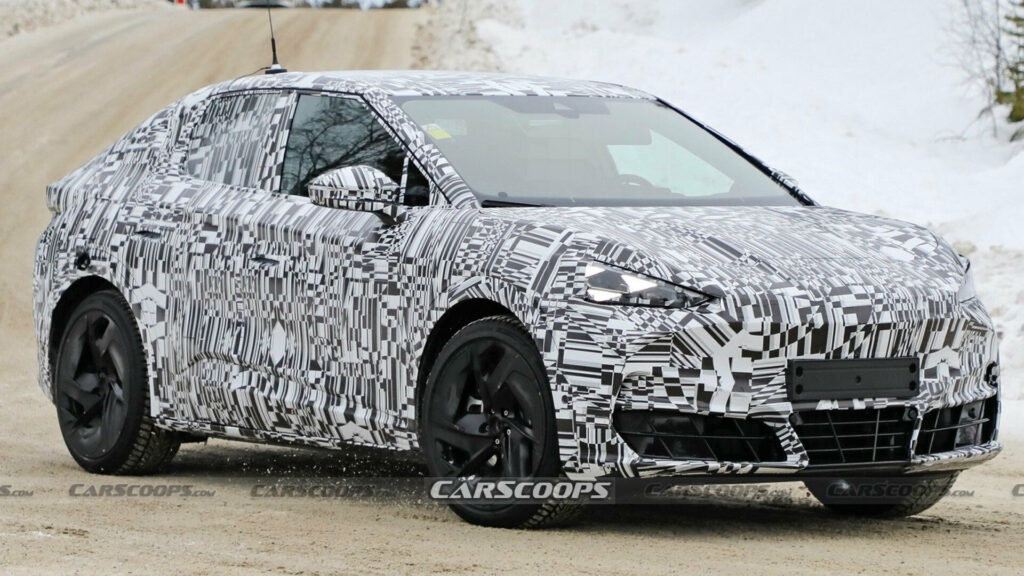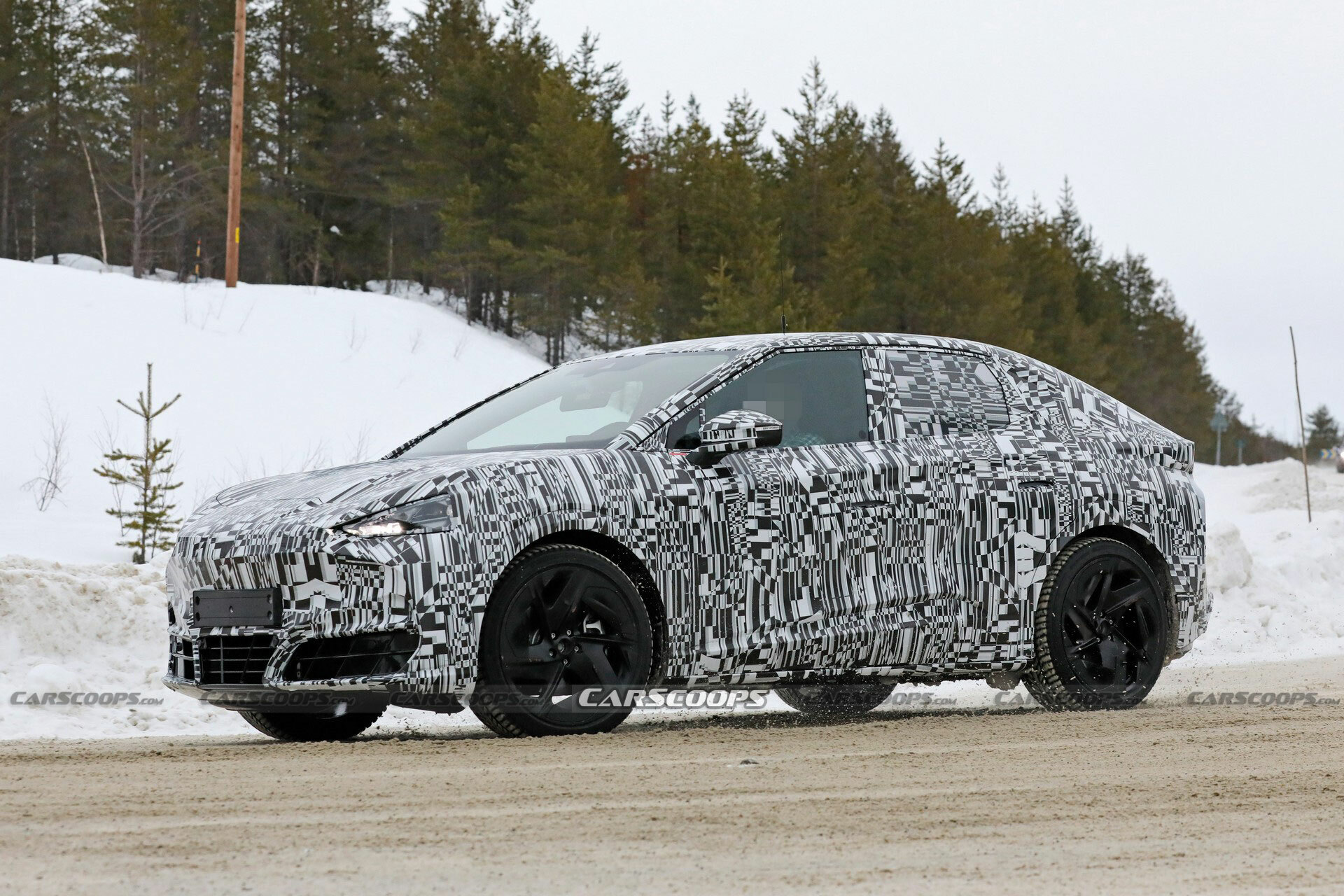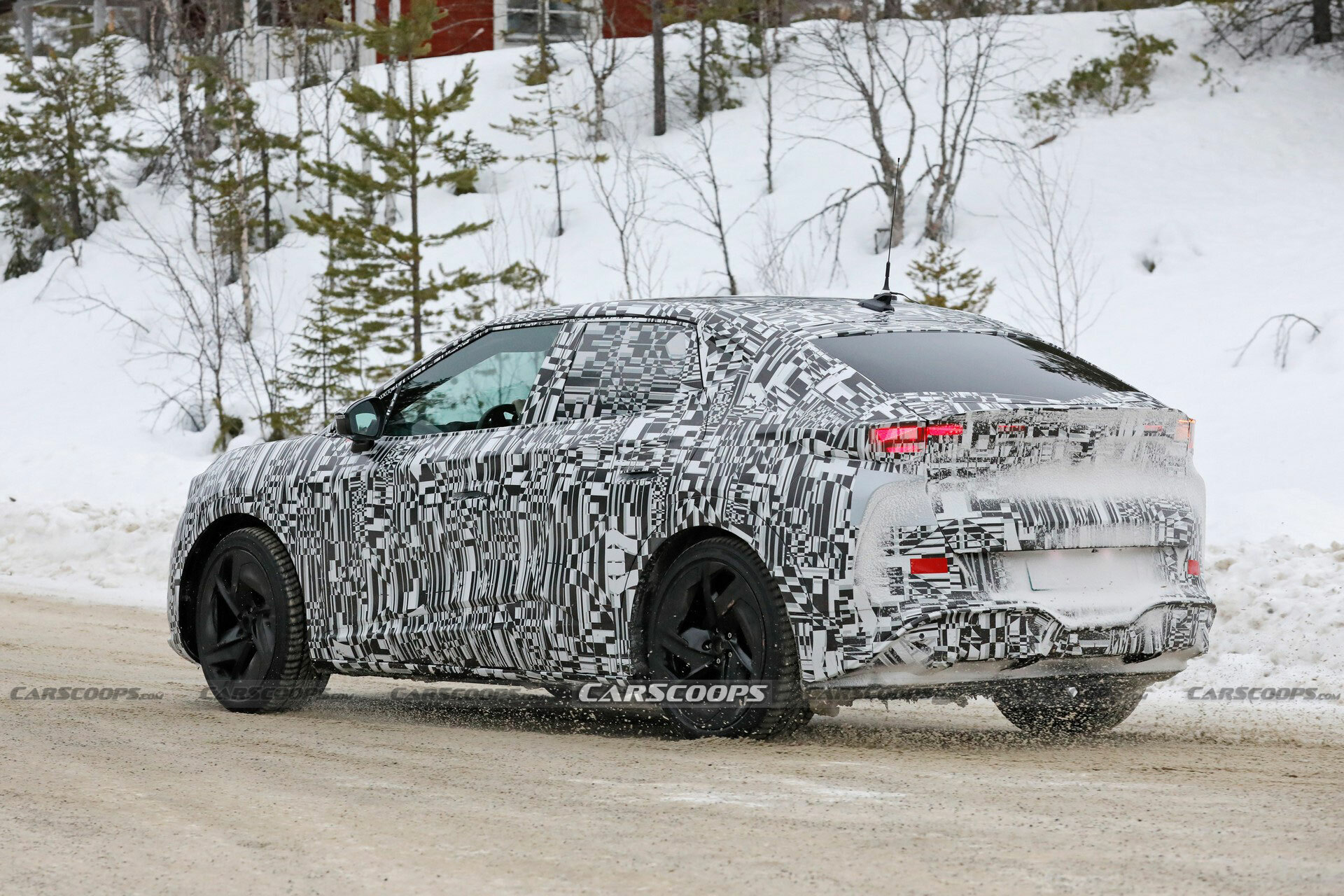The Cupra Tavascan has taken a significant step forward as the electric crossover has progressed from a mule to a full-bodied prototype.
Previewed by a concept in 2019, the production model is far less extreme but retains a wedge-like shape. This design starts from the front, where there’s a sloping hood, triangular headlights, and pronounced intakes that function as air curtains.
The sporty styling continues further back as the crossover coupe has an angular windscreen and an upward sweeping shoulder line. They’re joined by flush-mounted door handles and aerodynamically optimized wheels that appear to be pretty sizable.
Also: Cupra’s Electric Tavascan Concept Debuts As Brand Looks To Distance Itself From SEAT
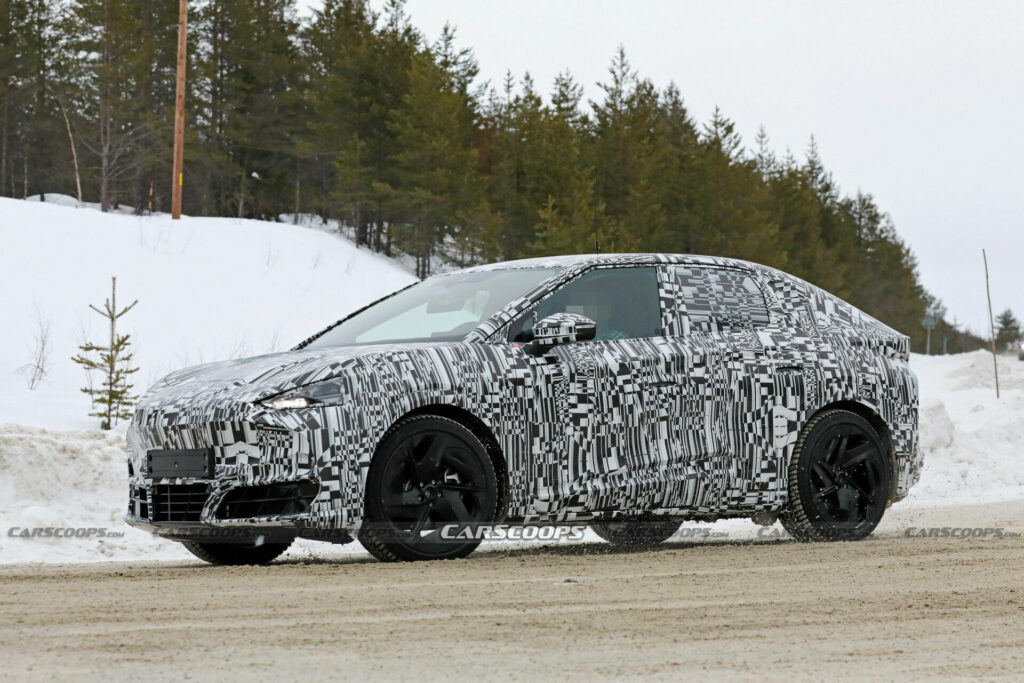
The rear end is a radical departure from the concept, but the production model has a small spoiler and slender taillights that are connected by an illuminated strip. Designers have also given the Tavascan a flamboyant bumper and a pronounced license plate recess.
While the photos only provide a glimpse into the cabin, the concept was equipped with a 12.3-inch digital instrument cluster and a moveable 13-inch infotainment system. However, the production model will likely ditch the latter setup as well as the concept’s individual rear seats.
Speaking of the concept, the crossover rode on the MEB platform and featured a dual-motor all-wheel drive system developing a combined output of 302 hp (225 kW / 306 PS). The model was also equipped with a 77 kWh battery pack, which allowed for a range of 280 miles (450 km) on a single charge.
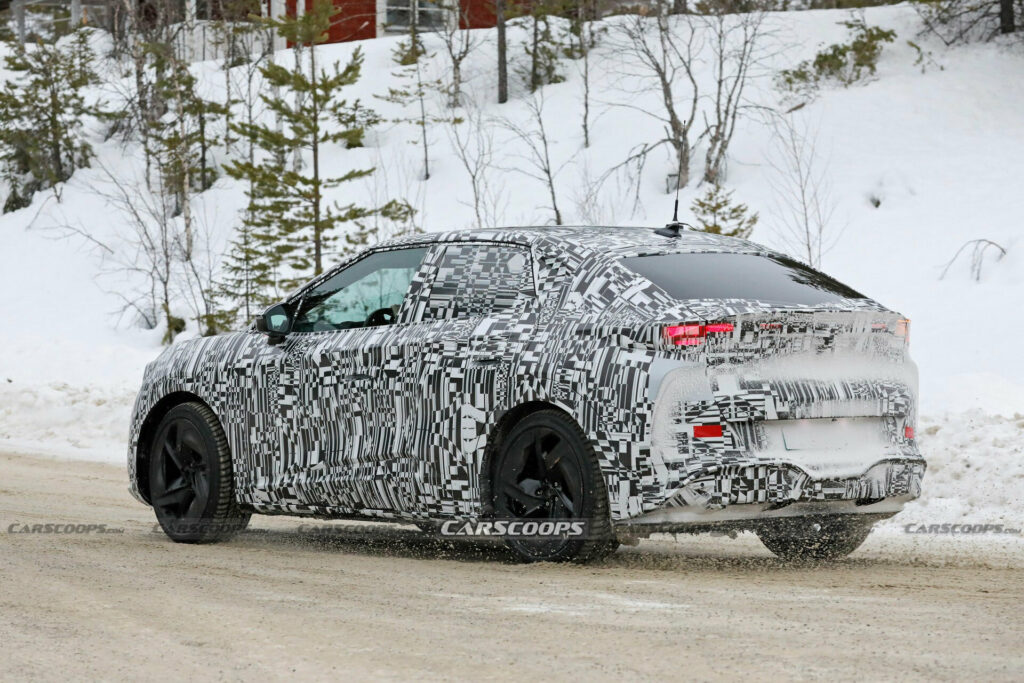
The production model could vary slightly and share its powertrain with the ID.5 GTX. If that’s the case, the Tavascan could keep the 77 kWh battery but have a lower output of 295 hp (220 kW / 299 PS). This remains to be seen, but Volkswagen’s crossover coupe can accelerate from 0-62 mph (0-100 km/h) in 6.3 seconds and hit a top speed of 112 mph (180 km/h). It also has a more impressive WLTP range of up to 304 miles (490 km).
We’ll learn more details in the coming months, but the Tavascan will be launched in 2024 and be followed by an “urban” EV in 2025.




